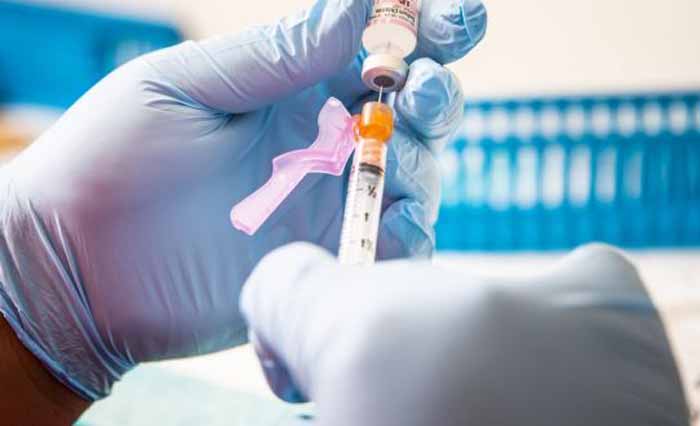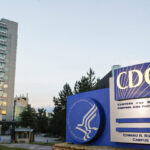By Zachary Stieber
Pushback to two top U.S. health agencies is growing over how officials handled clearing and recommending COVID-19 vaccine boosters.
The Food and Drug Administration (FDA) last month authorized boosters of all three vaccines available in the United States for all adults. Soon after, the Centers for Disease Control and Prevention (CDC) recommended any American 18 or older should get a booster, regardless of prior infection or underlying health conditions.
Then, earlier this month, regulators cleared a booster of Pfizer’s shot for 16- and 17-year-olds.
The agencies did not convene their vaccine advisory panels before making the major decisions, stoking pushback.
Philip Krause and Luciana Borio, two former top FDA officials, said in a recent op-ed the bypassing of the panels means “the costs and benefits of these policy moves, from a medical perspective, were not fully aired publicly and discussed in advance.”
“At this point in the pandemic, the world faces a host of new questions related to vaccines and boosting. The recommendations of experts on the outside advisory committees are needed more than ever—so the scientific community can understand the empirical bases for decisions, and so the public can be assured that science, not politics, is driving vaccine policy,” they added.
An FDA spokeswoman told The Epoch Times in an email: “As we said in our Nov. 19 press release, the FDA has determined that the currently available data support expanding the eligibility of a single booster dose of the Moderna and Pfizer-BioNTech COVID-19 vaccines to individuals 18 years of age and older. Streamlining the eligibility criteria and making booster doses available to all individuals 18 years of age and older will also help to eliminate confusion about who may receive a booster dose and ensure booster doses are available to all who may need one.”
The CDC did not respond to requests for comment.
Push for Boosters
The FDA and CDC have assumed greater importance in people’s day-to-day lives during the COVID-19 pandemic. Medicines and vaccines are only available after receiving clearance from the FDA, while the CDC makes recommendations that have been widely adopted by state and local authorities. Most vaccine mandates, for instance, cite the CDC and use its definition of fully vaccinated.
Strong political influence over key agency decisions has been recorded in internal documents later made public, including major teacher’s unions that helped craft guidance on school reopenings. Continuing a trend started during the Trump administration, the most Americans hear from top health officials is during press briefings moderated by the White House. In the case of boosters, top administration officials in August announced all adults should get one, even though the FDA had only cleared them for the immunocompromised.
Krause and another top FDA official resigned amid the push for widespread boosters.
That push was rejected the following month by the Vaccines and Related Biological Products Advisory Committee (VRBPAC), which advises the FDA on vaccines. Members said there was little evidence backing the widespread use of boosters. The FDA adopted the recommendation from the panel, which widened authorization for boosters but fell short of clearing the additional shots for all Americans. However, after the CDC’s vaccine advisory panel recommended narrowing who could get a booster, Dr. Rochelle Walensky, the CDC’s director, overrode the recommendation.
Instead of consulting the panel anew, the FDA in November authorized boosters for all adults. The CDC did convene its panel before saying all adults may get boosters, but did not call a meeting before later recommending all adults get an additional shot. The FDA this month cleared boosters for 16- and 17-year-olds without convening a meeting of VRBPAC, and the CDC recommended all teenagers in the population get an additional shot without consulting with its panel.
The FDA said in a release that it didn’t convene VRBPAC because no new questions arose “that would benefit from additional discussion by committee members” since an earlier meeting already went over boosting.
Krause and Borio said that was “unpersuasive, given the previously expressed views of panel members.”
COVID-19 is the disease caused by the CCP (Chinese Communist Party) virus. The effectiveness of COVID-19 vaccines against the new CCP virus variant, Omicron, has waned considerably, particularly against infection. Early studies show the vaccines provide little defense against the virus but that boosters restore some of the lost protection.
The CDC cited the recent data in announcing it was recommending boosters for all adults. But the case for boosters for teenagers is much weaker, since young, healthy adults are at little risk from COVID-19, and are at elevated risk of heart inflammation after getting vaccinated with the Moderna or Pfizer vaccines.
Surprised
Some experts were caught off guard by the clearance and recommendation of boosters for the 16- and 17-year-olds, especially given the lack of data on safety and efficacy in the age group. Some said it was clear panelists would have pushed back against the expansion proposals, and the panels may have rejected them.
“I’m surprised to see the CDC push boosters in healthy 16 & 17 year olds just after German[y] is reporting that no child 5-17 has died (most unvaccinated) of COVID in that country,” Dr. Marty Makary, chief of the Johns Hopkins Islet Transplant Center, wrote on Twitter.
The surprise deepened when the agency released a review memorandum (pdf) explaining Pfizer’s application relied on a clinical trial that included just 78 individuals, some of whom received a placebo. Even more concerning, one of the 78 experienced post-vaccination heart inflammation.
Dr. Paul Offit, professor of pediatrics at the Children’s Hospital of Philadelphia, is a member of VRBPAC.
He reviewed the memo and found it lacking.
“I believe that the booster dose is safe and that it increases the level of neutralizing antibodies. But where is the evidence in the U.S. that it is necessary for prevention of serious illness in young healthy people?” Offit told The Epoch Times in an email.
Central to the FDA’s decision was a risk-benefit calculus from Pfizer that predicted boosting 1 million 16- and 17-year-olds would avert 29 to 69 hospitalizations but cause 11 to 54 heart inflammation cases. Pfizer predicted the boosters would also avert as many as 43,143 COVID-19 cases.
Pfizer assumed a higher vaccine effectiveness than seen in some studies and assumed rates of myocarditis by taking reports to two U.S. reporting systems and reducing the estimate based on data from Israeli 16- to 19-year-olds.
The figures suggest that boosting “is not associated with an unacceptable risk of myocarditis and pericarditis,” two forms of heart inflammation, the FDA said.
Dr. Paul Alexander, a former adviser to the World Health Organization/Pan American Health Organization and to the Department of Health and Human Services during the Trump administration, disagrees.
He told The Epoch Times in an email that the FDA’s decision “is misguided and not based on any science.”
“This age group do not even need the 1st and 2nd shots and a booster makes no sense and this is all risk and no benefit especially when you consider the heightened risk of myocarditis in this age group,” Alexander added.






